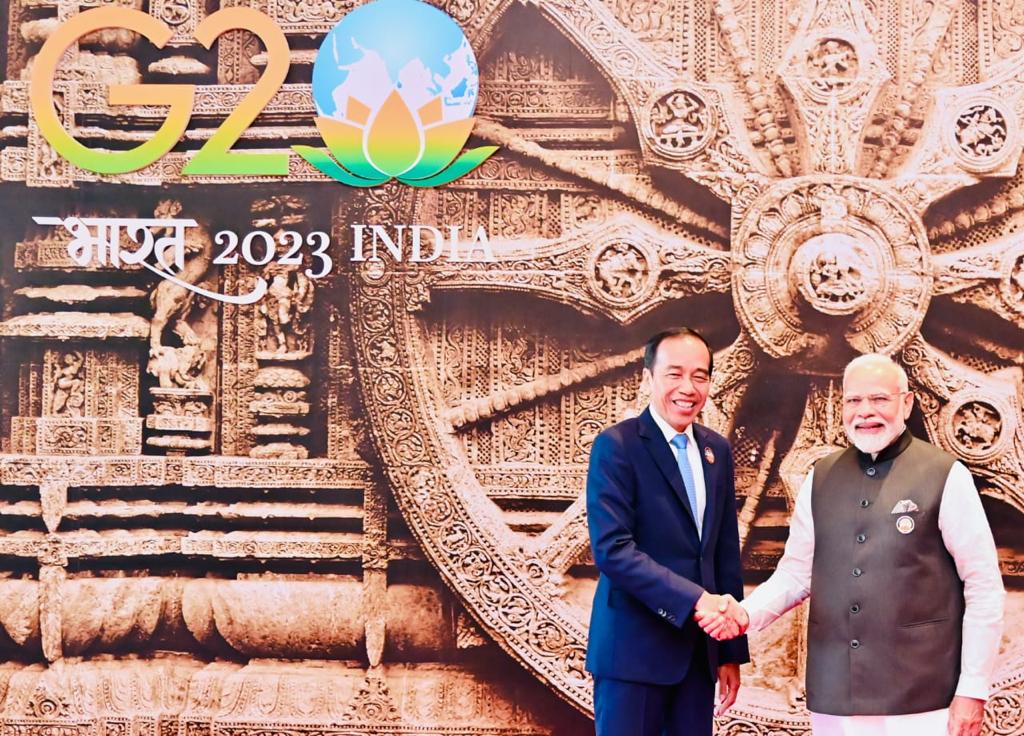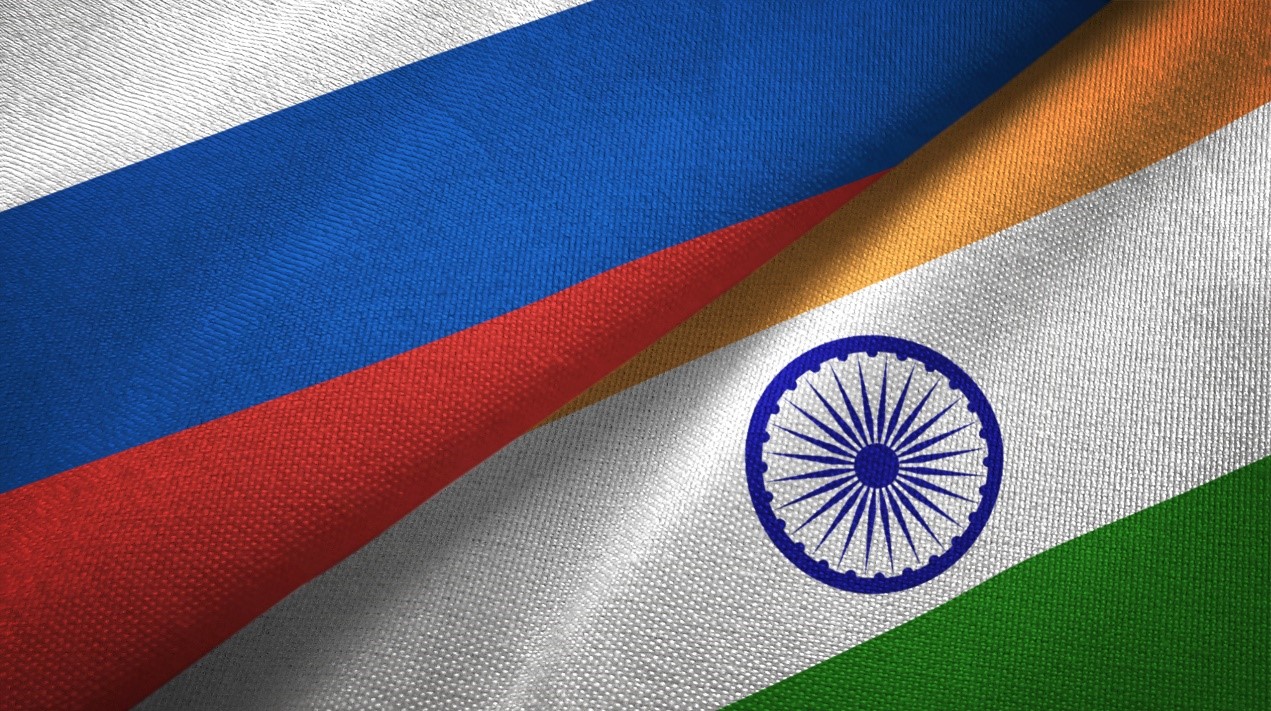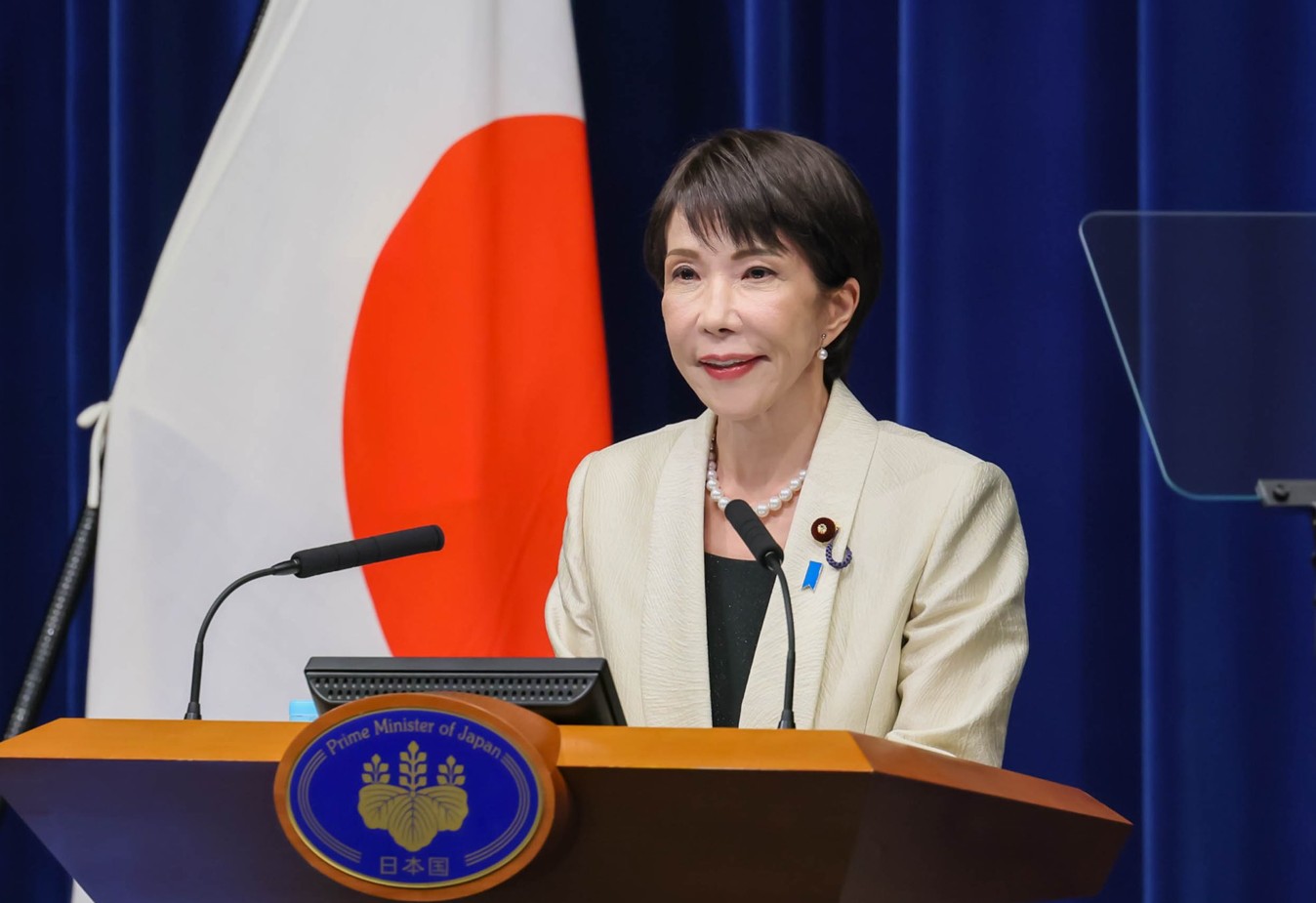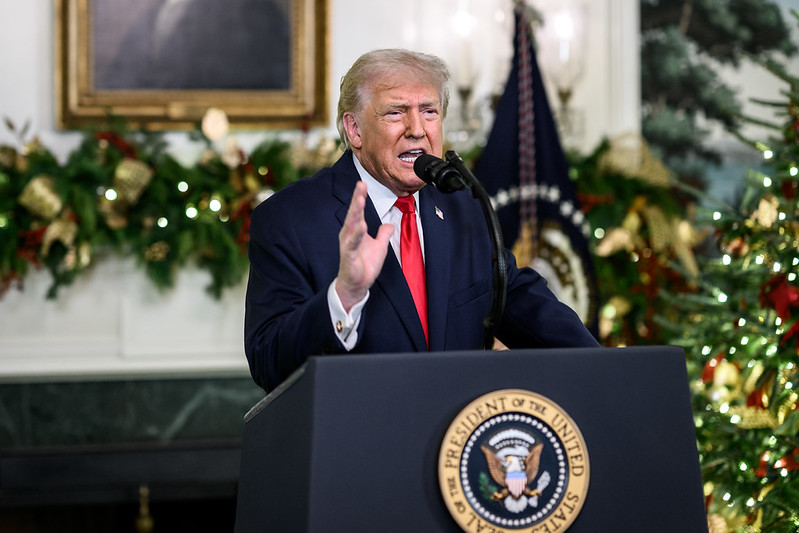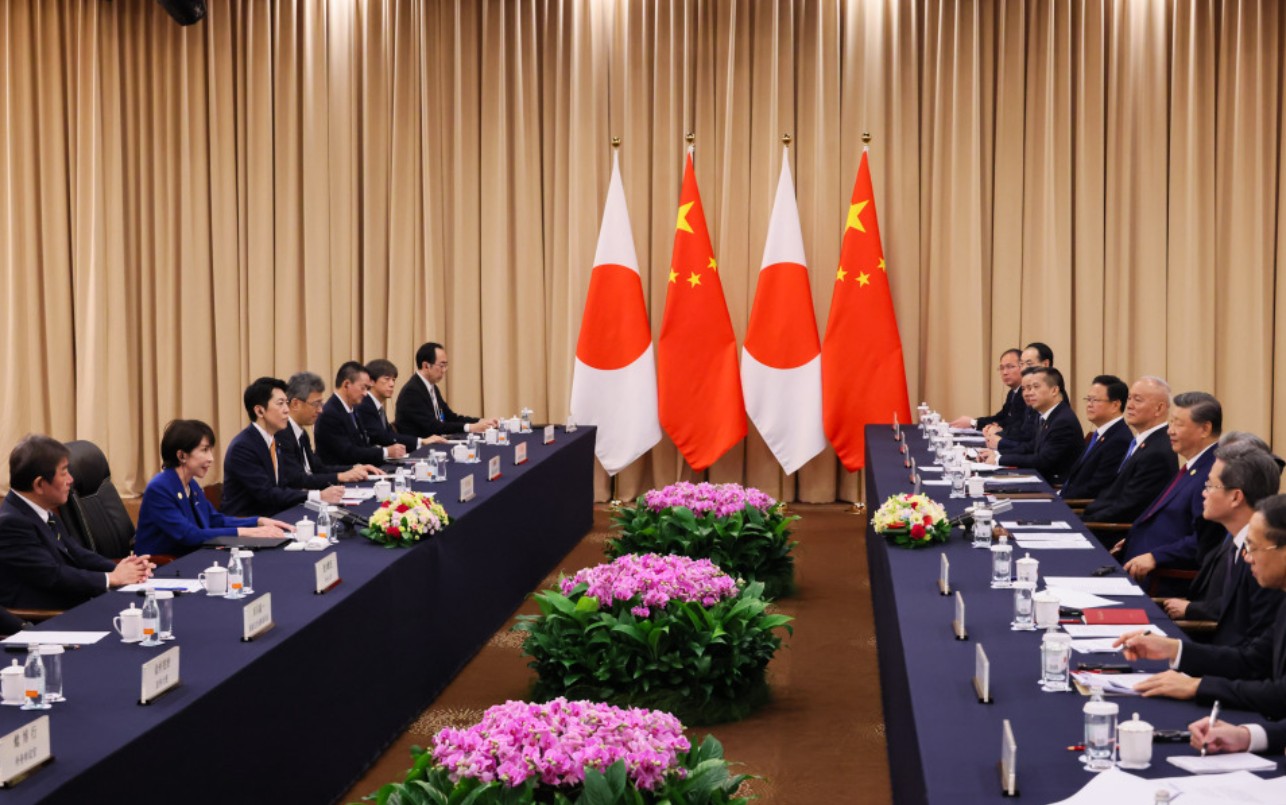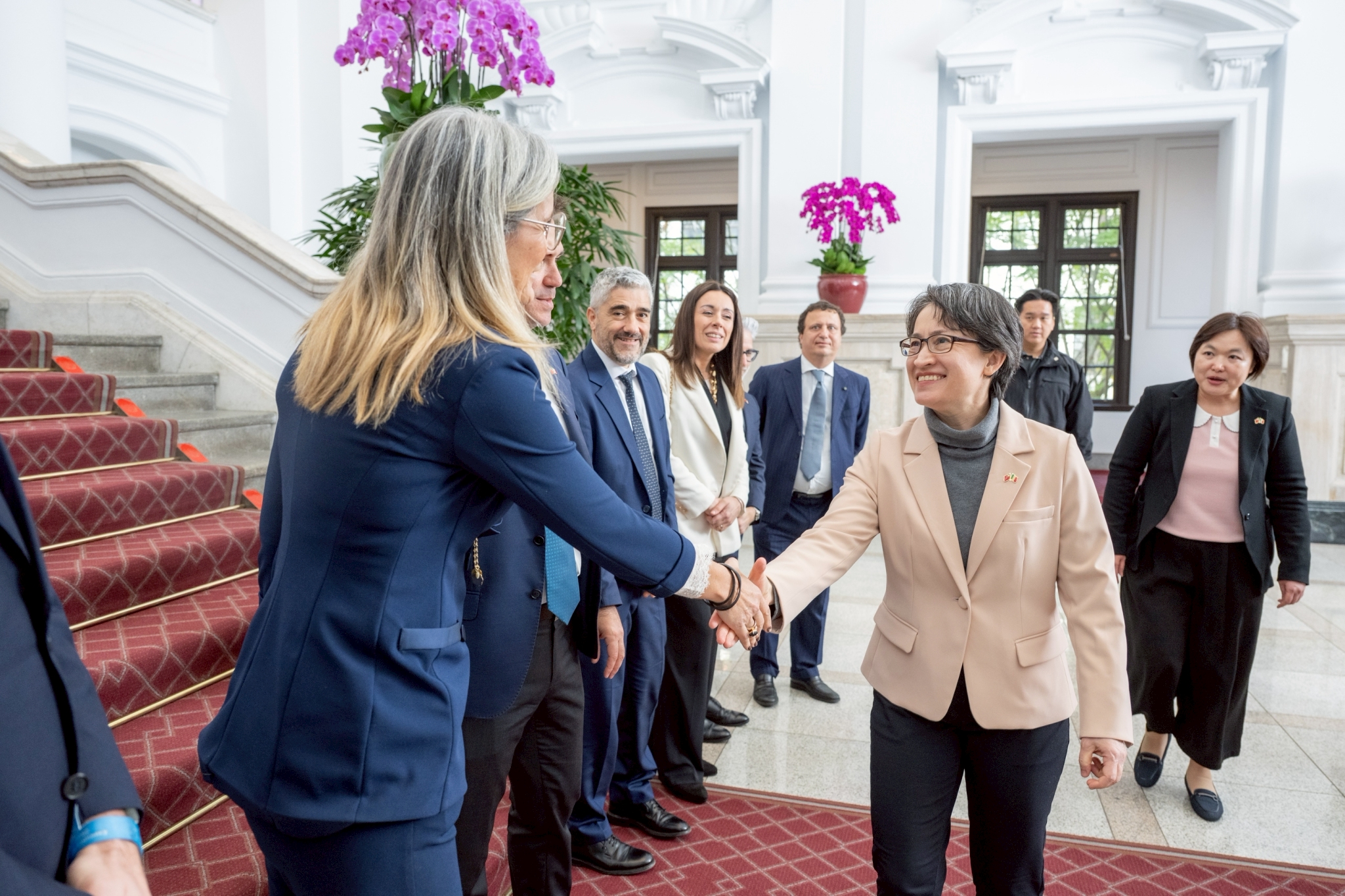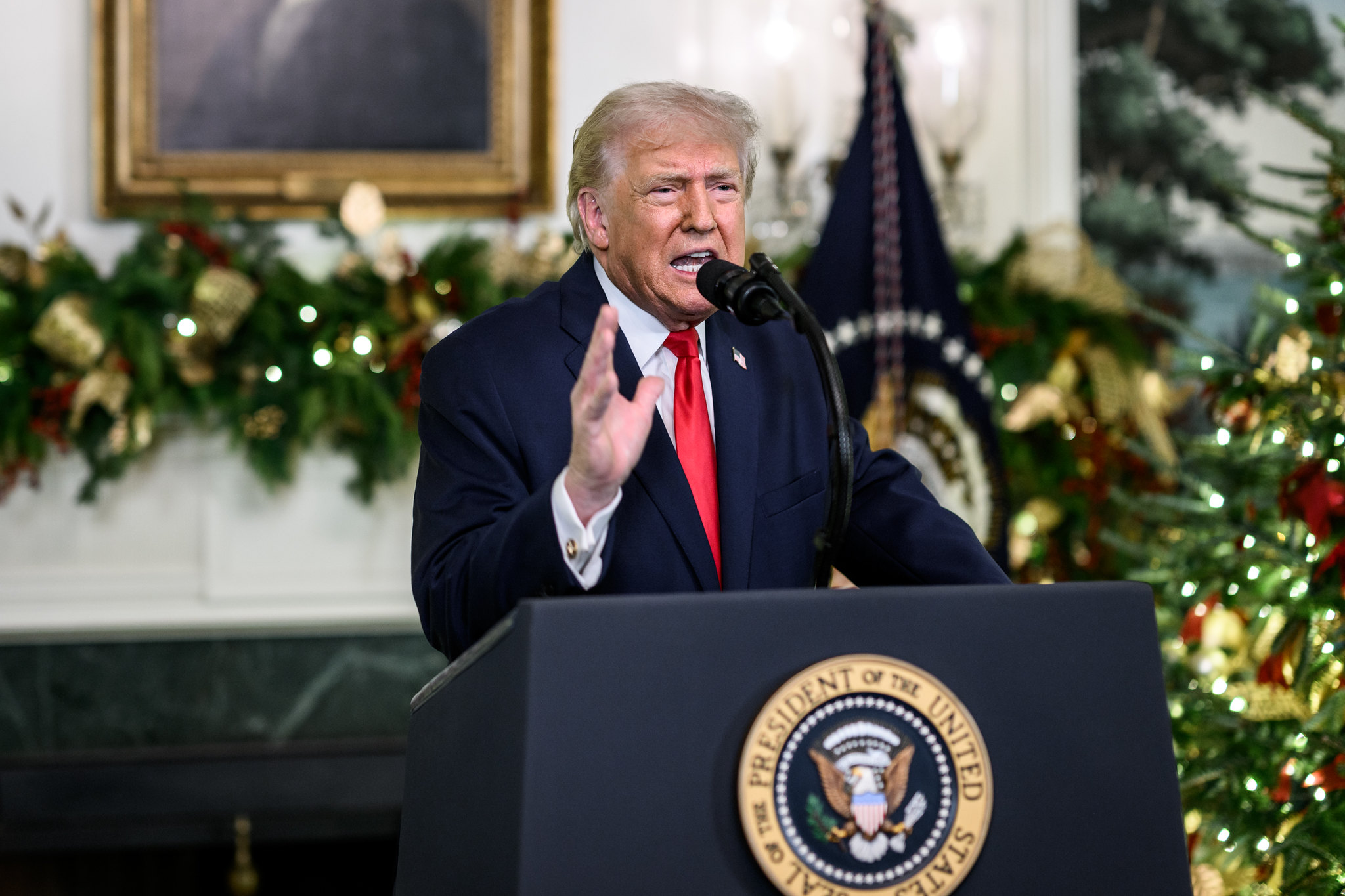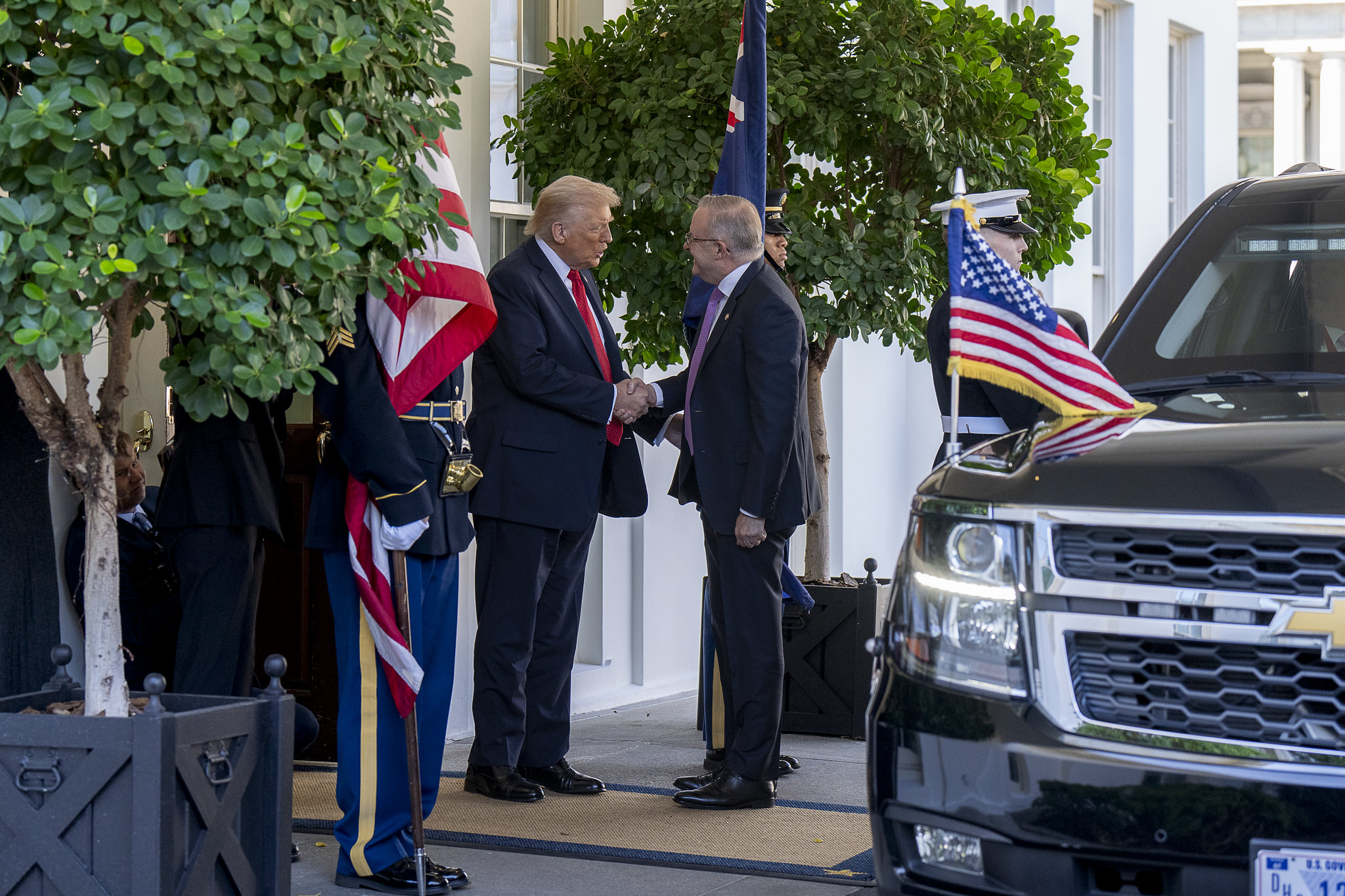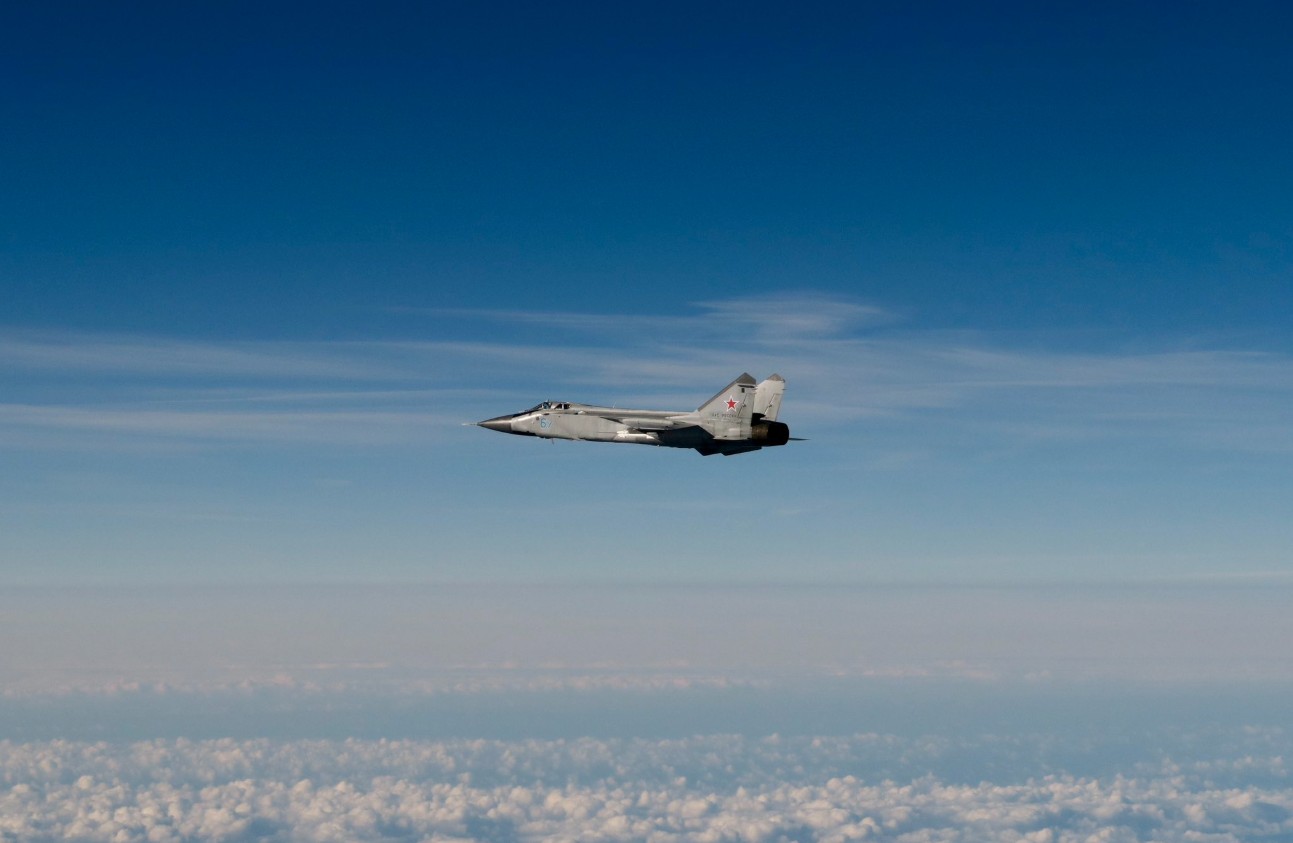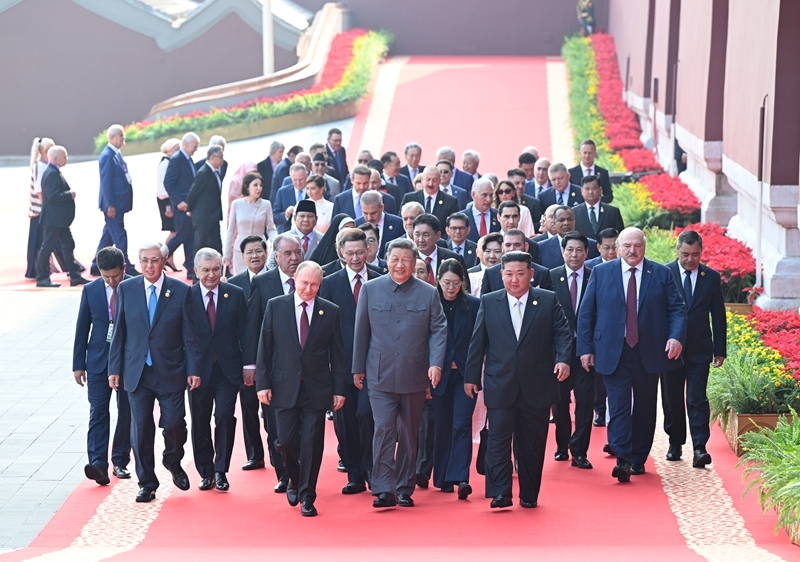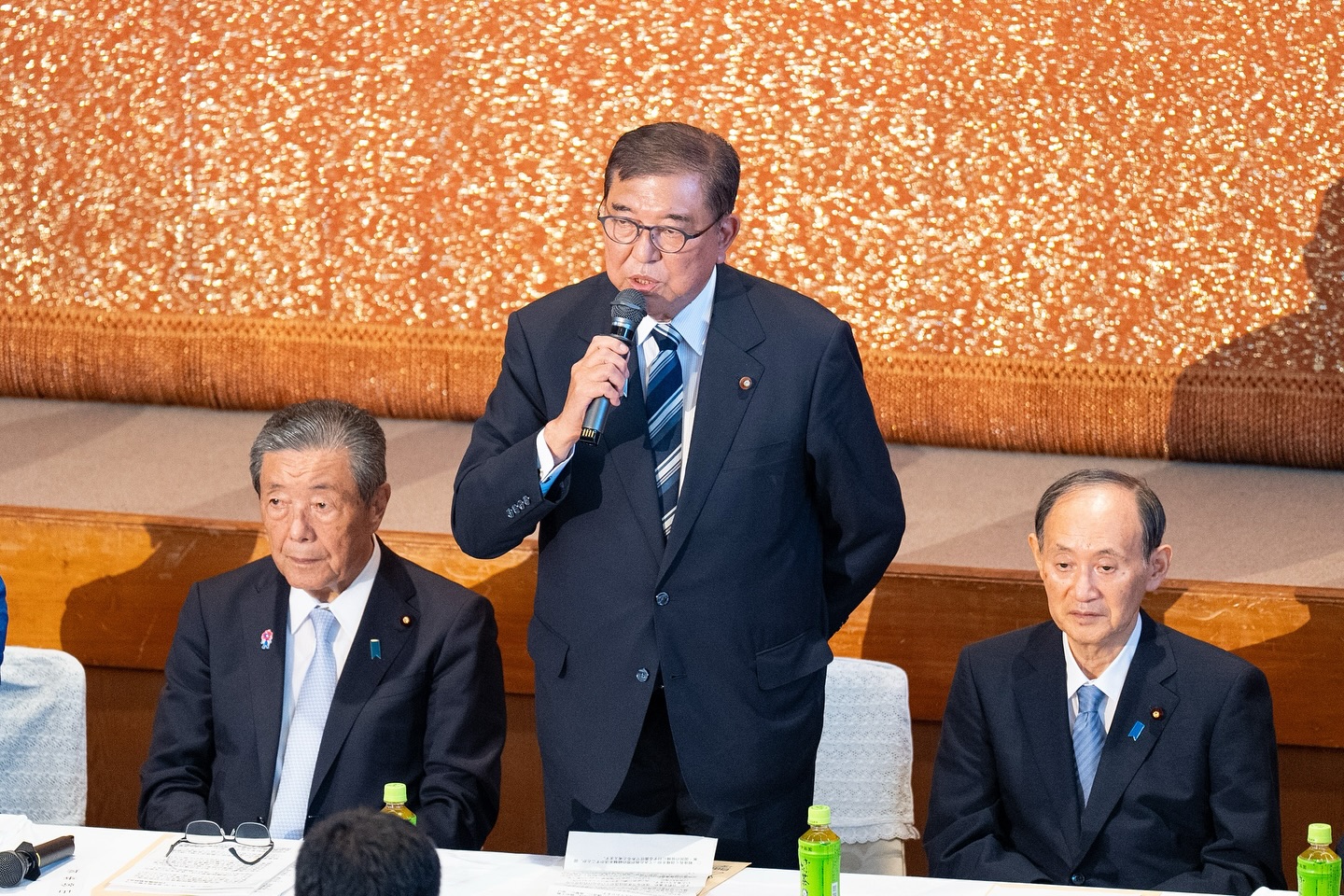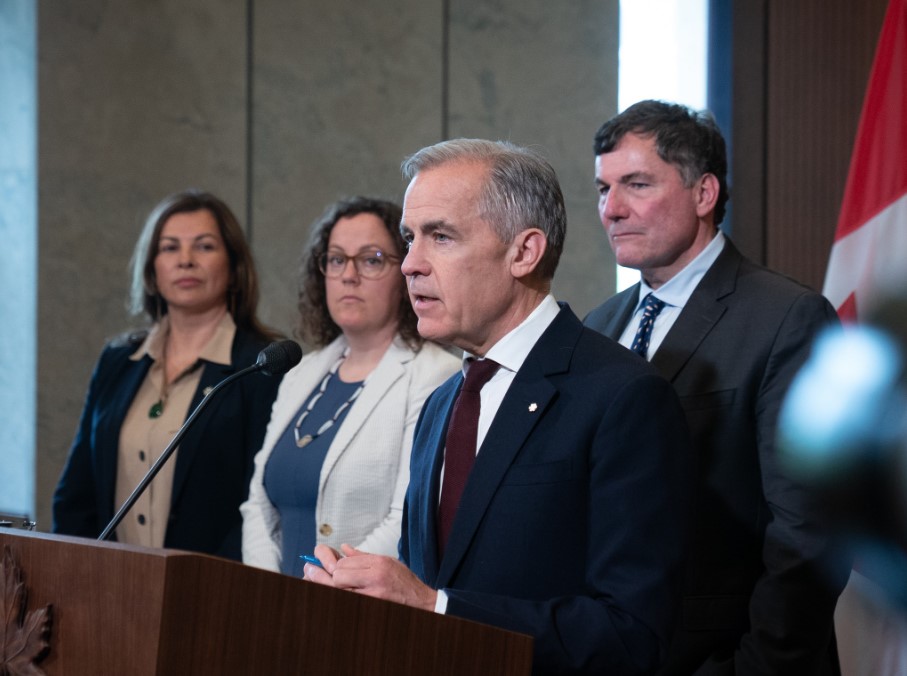Next year is going to be significant for South Asia and Southeast Asia as many countries will hold general elections. India, Pakistan, Bangladesh and Indonesia will conduct their national general elections in the first half of 2024. In this series of elections, it will be important to see the developments in India and Indonesia, where the leaders have been in power for the last 10 years. Photo source: Joko Widodo, September 9, 2023, X, https://twitter.com/jokowi/status/1700458408720441780.
Prospects & Perspectives No. 68
Elections in India and Indonesia: Implications for the Indo-Pacific
By Kritika Rajput & Siddhartha Ghosh
Next year is going to be significant for South Asia and Southeast Asia as many countries will hold general elections. India, Pakistan, Bangladesh and Indonesia will conduct their national general elections in the first half of 2024. In this series of elections, it will be important to see the developments in India and Indonesia, where the leaders have been in power for the last 10 years.
India, the largest democracy and the largest population in the world, will have a significant impact on regional as well as global geopolitics, either with a change in government or the re-election of the incumbent. In April 2024, India will hold its general elections, in which over 600 million people will cast votes with aspirations of either re-electing Prime Minister Narendra Modi and his ruling Bhartiya Janata Party (BJP) to a third five-year term or electing a new leader. Similarly, Indonesia, the world’s largest Muslim-majority country, is poised for a significant political transition as there will certainly be new leadership after 10 years of government led by Joko Widodo (or Jokowi) since under the constitution no president is allowed to be in office for more than two terms.
Regional implications
India and Indonesia share several similarities, including being the most populous countries and the largest democracies in their respective regions and the globe; and in both countries, the election campaigns mainly revolve around religion and identity politics. Apart from these, one more thing that connects both countries: India and Indonesia are major actors in the Indo-Pacific region (IPR). Hence, any change in leadership will have a significant impact on the existing initiatives and policies for the IPR. Both share a common objective of establishing an effective mutually beneficial relationship and are well-positioned to maintain cooperation and contribute significantly to the security and prosperity of the IPR.
From the eastern shores of Africa to the western shores of the United States, the IPR has become an essential focal point for active involvement between regional and global powers. It is home to some of the fastest-growing economies in the world. Indonesia, the largest country in Southeast Asia and the preeminent state among the Association of South East Asian Nations (ASEAN), is ideally located at the confluence of the Pacific and Indian oceans. Since Jokowi took office in 2014, Indonesia has made an effort by actively participating in ASEAN deliberations and successfully using the organization to strengthen its status as the region’s leader.
Partners are watching
India, meanwhile, has emerged as a significant force in both South Asia and the Indian Ocean Region (IOR) due to its advantageous location in the Indian Ocean. The IOR along with IPR have always been crucial to India’s economy and security and have emerged as key focus areas for India’s foreign policy in recent years. India’s role in the Indo-Pacific is considered essential by countries such as Japan and the U.S. Therefore, it has made efforts to deepen its strategic alliances with countries in IPR, collaborate closely with international institutions to advance economic growth, and actively participate in security-related discourse and collaboration. Hence, the Indo-Pacific’s long-term strategic stability is highly dependent on how these countries engage with one another and others in the region.
Additionally, elections in India and Indonesia often are greater battles of personalities and lesser battles over policies; therefore, it will be interesting to see how changes in government would affect their respective approach to IPR, as this region has become more important than ever before. This significance is due to being home to major economies like India, China, Japan, Australia, and Indonesia, and a pivot of global geopolitics. Its significance is underscored by crucial maritime trade routes, such as the Strait of Malacca, and key ports facilitating trade between Asia, Europe, and Africa.
The case of India is different from that of Indonesia as there are two possibilities — either incumbent Prime Minister Modi will get re-elected or he will be replaced by a new leader. In the first scenario, there may be a continuation of the policies already launched and implemented with possibilities of new initiatives being launched as the momentum is already set. To maintain a favorable balance of power in the IPR, the Modi government launched the “Act East Policy” (AEP) in 2014. Following AEP, India also revived the Quadrilateral Security Dialogue (or Quad) and launched initiatives like Security and Growth for All in the Region (SAGAR) in 2015 and the Indo-Pacific Oceans Initiative (IPOI) in 2019 to expand and facilitate regional cooperation of India's maritime neighbors.
However, in the second scenario, it would be interesting to see how the new government, most probably be led by the Indian National Congress (INC), will engage in IPR, as during their previous terms they had a less proactive approach toward IPR, which had just started to gain significance at that time. They launched many initiatives for IPR like the Indian Ocean Rim Association (IORA) in 1997; and a trilateral security arrangement between India, Sri Lanka and Maldives, but the problem has always been the implementation of these initiatives, which was not been satisfactory. It will be interesting to see the developments following the 2024 election. As IPR is the need of the hour for India, it is expected that the new government will continue engagements with the countries in the IPR.
Indonesia as a middle power
Regarding Indonesia, there is keen interest in how the country’s future president will carry on Jokowi’s legacy in the Indo-Pacific. Under Jokowi, Indonesia announced its own interpretation of the Indo-Pacific concept in 2018. Indonesia’s Indo-Pacific Outlook can be understood as an attempt to further affirm Indonesia’s role as a middle power in contemporary geopolitics. Indonesia under Jokowi lobbied for the ASEAN Outlook on Indo-Pacific (AOIP), which was finally adopted in June 2019. In addition to having an impact on domestic and regional issues, this election will have a significant impact on Indonesia’s foreign policy, especially within ASEAN and India as a new regime will define its new policies for engagements with the region. Therefore, the next president of Indonesia will be at the center of ASEAN politics and Indo-Pacific engagements. Following the existing momentum, Jokowi’s successor may continue to maintain the approach towards IPR in an effective and credible manner; if not, they might come up with a better plan than what Jokowi has envisaged.
Changes in the government may lead to a disruption in engagements or a new wave of initiatives in IPR as each government has its distinct characteristics of engagement with other countries and perception of national interest.
(Kritika Rajput is Research Associate, Red Lantern Analytica; Siddhartha Ghosh is Head of Research and Outreach, Red Lantern Analytica)



